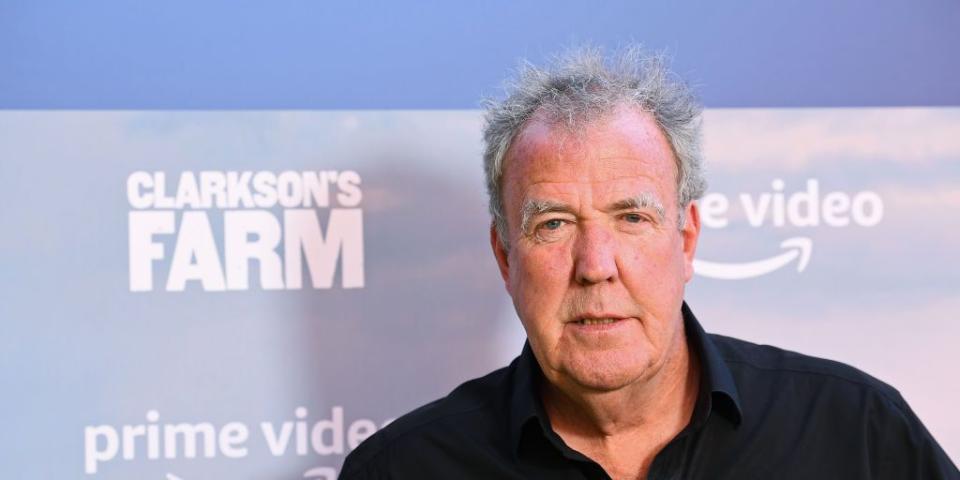Jeremy Clarkson Has Nothing Left to Say

Americans got to know Jeremy Clarkson as the face of Top Gear, but not the Top Gear that had existed since the 1970s. We only ever got the megahit Top Gear, the one re-oriented around Clarkson as a sort of hour-long homage to car culture in general years after the end of its time as a British MotorWeek. This version of the show was once among the biggest television programs in the world, a perfect combination of evocative storytelling about what can make cars and driving special that anyone could understand and a rare ability to bring guys-being-dudes camaraderie to the screen on a weekly basis. Clarkson was at the heart of it, the voice of countless video essays about Alfa Romeos and the face of dozens of adventures in leaving your friend stranded on the side of the road in a used car. And it all ended because he could not resist the urge to punch a producer in the face.
Clarkson's controversies did not start or end there, but no singular moment explains his ability to destroy his own successes better. That was the theme for almost the entire run of the show; Top Gear would not be Top Gear without Clarkson's ability to effortlessly move between the poetic and the crass, but his process somehow always seemed to come with either making someone else angry or getting angry himself. The show's popularity was unquestionable, but it was also a burden for the BBC. Such a burden that there is not only a Wikipedia page entitled "Top Gear Controversies," the page is so busy that there are 17 different subheadings for "specific criticisms."
That was the price of Jeremy Clarkson, though. For the BBC, it was worth it from 1988 to 2015. The company not only stayed loyal through a short-lived talk show, they trusted him to revive the once-valuable Top Gear brand in his own image and stood by that version of the show for 13 years. Only actual, physical conflict with his own coworkers was enough to end that, and even that was not enough to stop Amazon Prime from diving on the opportunity to revive the Clarkson-and-his-friends-drive-cars format with their The Grand Tour.
The price continues. Despite devoting considerable time on the original Top Gear to criticizing Britain's tabloid industry, Clarkson has long written opinion stories espousing some of his more specific angers with the world. These columns have often been about domestic politics, but they also tend to dip into Clarkson classics like his ongoing war on speed cameras. The tone is familiar to anyone who knows Clarkson's work, joke formats you'd recognize from any Top Gear essay mixed in with a certainty that he knows better than you. They are largely predictable, rarely interesting, and distinguishable from the grumpiest American columnists only in subject.

 Yahoo Autos
Yahoo Autos 